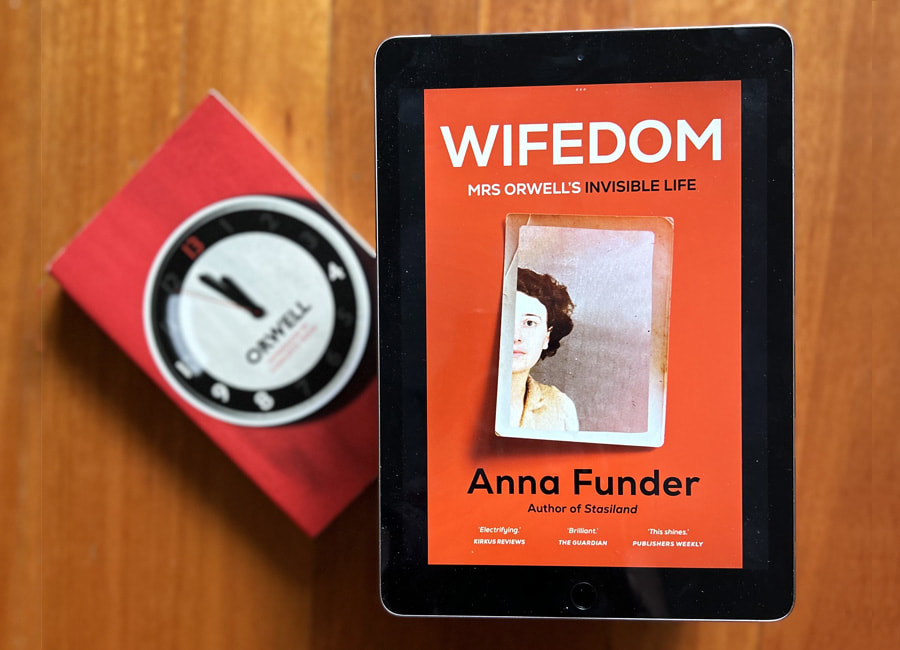|
“Orwell’s biographers are seven men looking at a man,” writes Anna Funder a few chapters into her latest work, Wifedom, as she explains what ignited her interest in the book’s central subject, Eileen O’Shaughnessy, who married celebrated novelist George Orwell in 1936.
“Each of them is brilliant,” she writes. “But all of them minimise the importance of the women in Orwell’s life. In the end, the biographies started to seem like fictions of omission… So, I went to their sources and found other facts and other people - those that had been left out. Eileen began to come to life… I decided to go into the black box and get her out.” The result of Funder’s plunge into Eileen’s “black box” is a biography quite unlike any I’ve ever read. The Australian author of other acclaimed novels Stasiland and All That I Am, interweaves painstakingly researched primary sources (including newly discovered letters written by Eileen) and secondary sources (including recorded interviews of people close to the couple). She overlays these historical facts with an imaginative retelling of Eileen and Orwell’s lives, around which she also intersperses her own first person observations about her feelings, motivations and biases as the book progresses. Her revelations about Eileen’s life and influence on Orwell are stunning yet, sadly, not wholly surprising. Like the fact that she’d published a poem called ‘End of the Century, 1984‘ in which she’d projected a dystopian future, well before Orwell penned 1984. Or that she was in a dissident workers party operating in Barcelona during the Spanish Civil War, yet she was not mentioned in Orwell’s novel about that period ‘Homage to Catalonia’. Or that she was Orwell’s editorial soundboard, edited his manuscripts and managed the publication of his novels - all unacknowledged contributions. Funder’s point: despite the magnitude of Eileen’s influence on one of the 20th century's most seminal novelists, she has been erased from the historical records. While these revelations were enough to keep me engrossed, the book’s secondary underlying theme also got me thinking deeply. And that is, when you know more about the personal life of a great author or artist, should that influence the way you feel or respond to their writing? Because much of the evidence presented by Funder points out Orwell’s shortcomings (by today’s standards) - how deeply awful he was to his wife through his philandering, selfishness and neglect despite her stoic support for and influence on his craft. But Funder also goes to great lengths, in my view, to balance this by contextualising his behaviour against the contemporary forces of their times and Funder’s own perspectives and biases. You are left with the very real sense that Funder has not set out to “cancel” Orwell - in fact, on the contrary, to her Orwell remains a literary genius. “It was Orwell‘s insight,” Funder writes in Wifedom, “that allowed me to see how men can imagine themselves innocent in a system that benefits them, at others’ cost. I can see Orwell’s valiant effort - and Eileen’s. I can hold in my mind both sides of things - the blind tyrant and his seeing words, the wife and her husband, my own work and my life and everyone in it.” In the end this remarkable biography not only brings Eileen back to visibility and provides nuanced insights into George Orwell's mind and motivations, it also shows the strong undercurrents that have seen the lives of so many women being swept out and lost in the sea of history. Comments are closed.
|
Categories
All
Archives
May 2024
|

